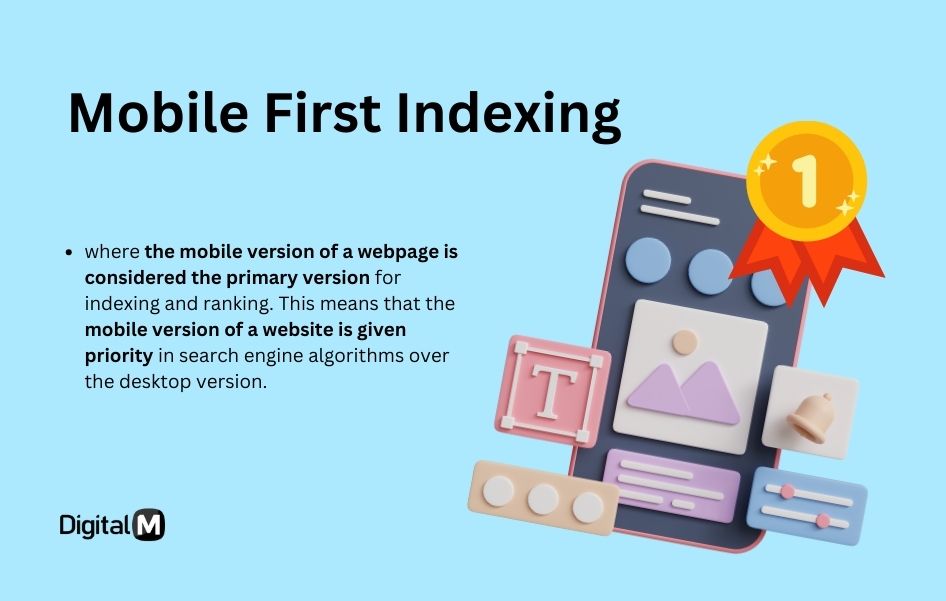Mobile-first Indexing
Mobile-first indexing is an approach adopted by search engines, such as Google, where the mobile version of a webpage is considered the primary version for indexing and ranking. This means that the mobile version of a website is given priority in search engine algorithms over the desktop version.
Mobile-first indexing means that search engines primarily look at and analyze the mobile version of a website when deciding how to rank it in search results. This is important because more people now use mobile devices to browse the internet.

Key Points:
Mobile Version Priority: Search engines prioritize the content and user experience of the mobile version of a website when determining its position in search results.
Responsive Design: Websites with responsive design (layouts that adapt to different screen sizes) are well-suited for mobile-first indexing.
Background:
With the increasing use of mobile devices for internet browsing, Google introduced mobile-first indexing to ensure that search results are relevant and optimized for the majority of users who access the web via mobile devices.
Impact on SEO:
Content Parity: It’s essential to maintain content parity between the desktop and mobile versions of a site. Important information should be present on both versions.
Mobile-friendly Design: Websites with mobile-friendly designs, such as responsive layouts and fast loading times on mobile devices, are favored in search rankings.
Suggested reads: Why is Mobile SEO Important for Every Business?
How to Implement:
Responsive Web Design: Adopt a responsive design that ensures a consistent and optimized experience across various devices.
Structured Data: Ensure that structured data (markup providing context to search engines) is present on both desktop and mobile versions.
Example:
If a user searches for a topic on a mobile device, Google’s mobile-first indexing considers the mobile version of a webpage to provide the most relevant results. If a website has a well-optimized mobile version, it is more likely to rank higher in mobile search results.
Why it Matters:
User Experience: Mobile-first indexing aligns with the increasing trend of users accessing the internet via mobile devices, ensuring a better user experience for a larger audience.
Search Rankings: Websites optimized for mobile-first indexing are more likely to rank higher in mobile search results, which is crucial for organic traffic.
Mobile Search Dominance: Given the prevalence of mobile search, websites not optimized for mobile-first indexing may experience a drop in visibility in search results.
In summary, mobile-first indexing is a search engine optimization approach where the mobile version of a website is prioritized for indexing and ranking. It reflects the shift in user behavior towards mobile browsing and emphasizes the importance of mobile-friendly design for SEO success.

